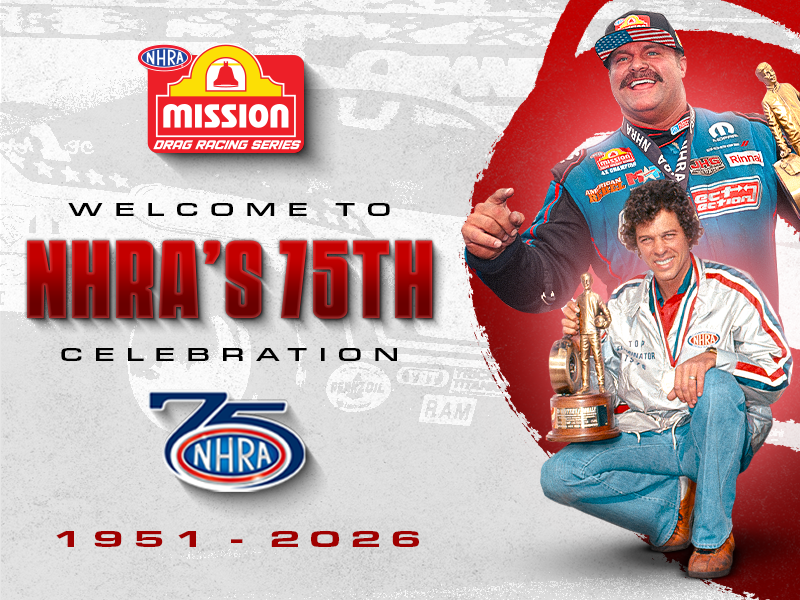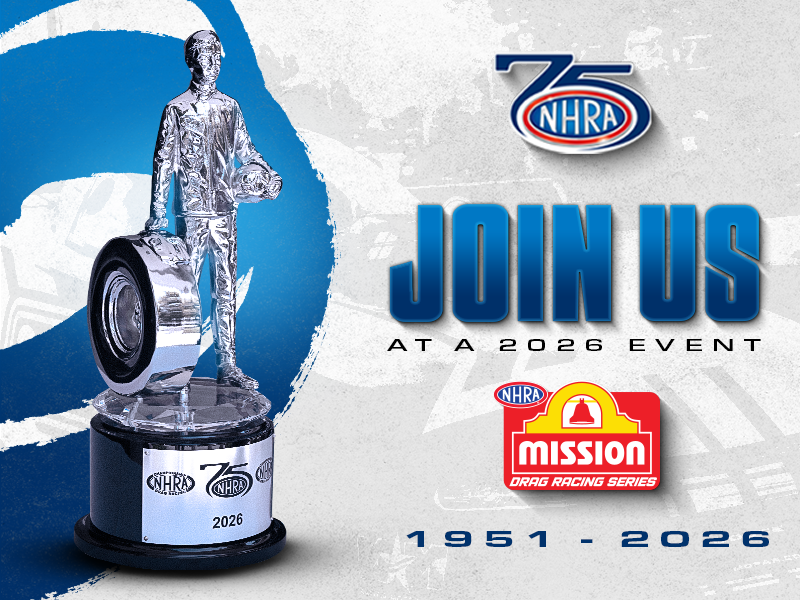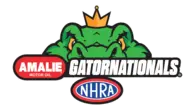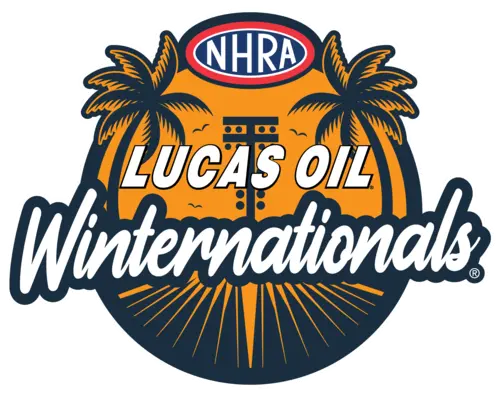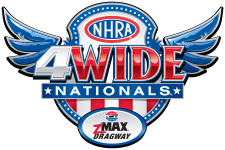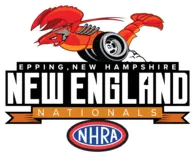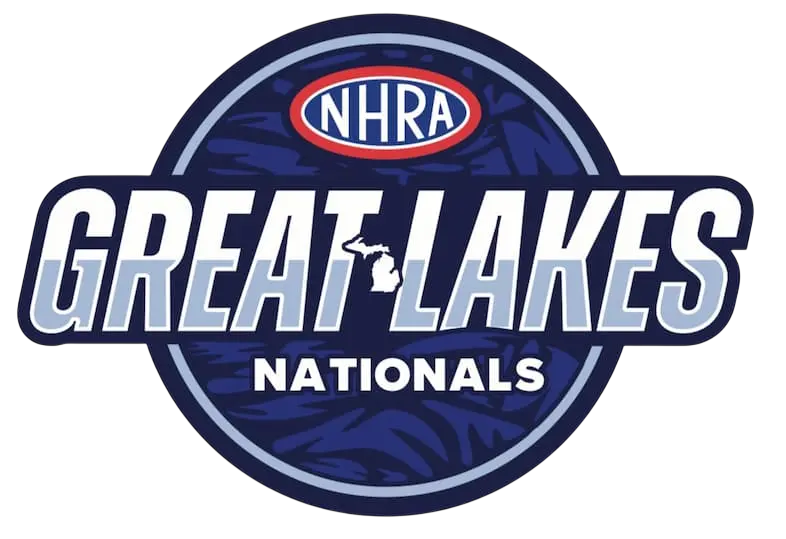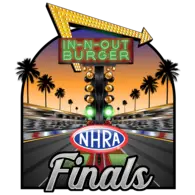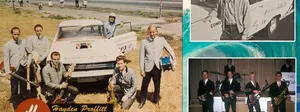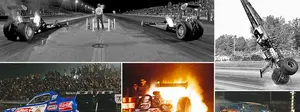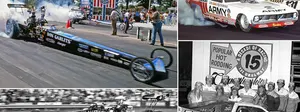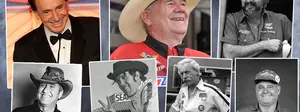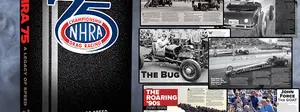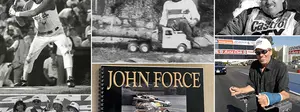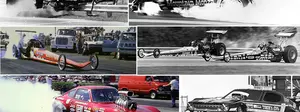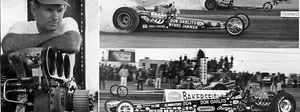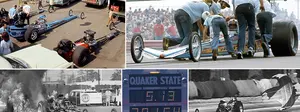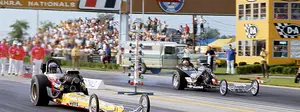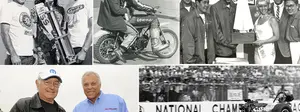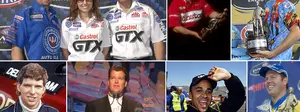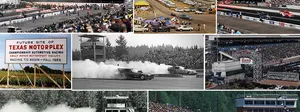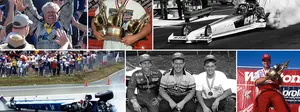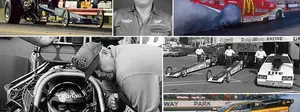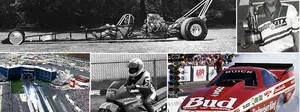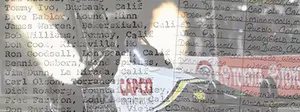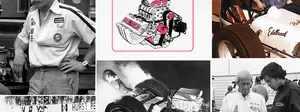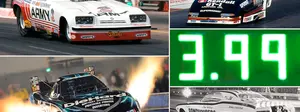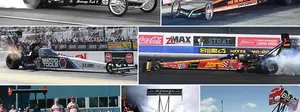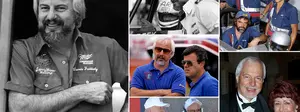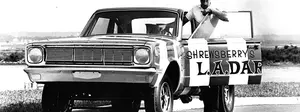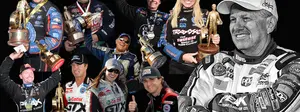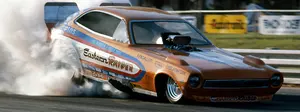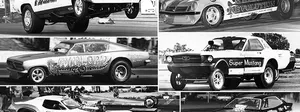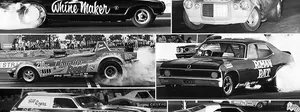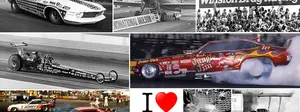Top Fuel 'on the fours': A look back at six NHRA Top Fuel championship years
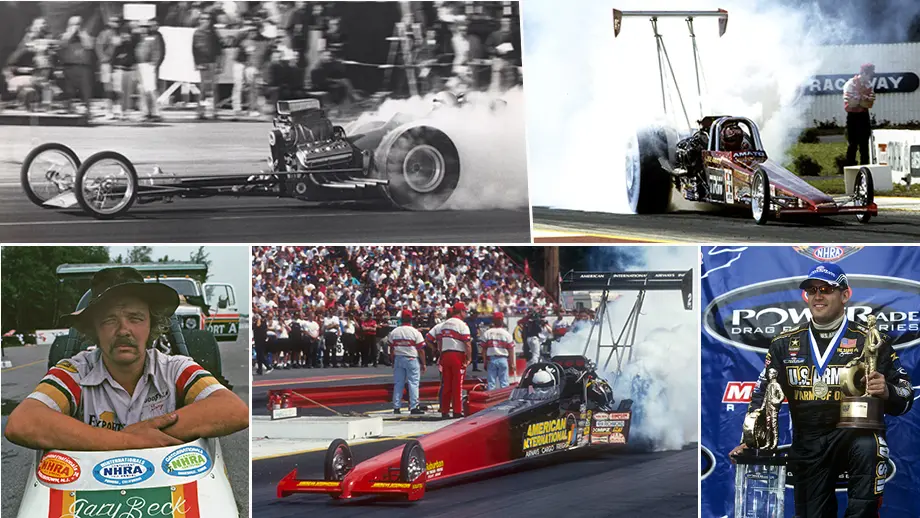
In just a few weeks, we’ll be crowning world champions in Pomona, as we have for the last 40 years since the season finale moved to the track in 1984, and when it comes to Top Fuel, it will be the 60th year that we’ve crowned a Top Fuel world champ.
Sixty years ago, Jack Williams was NHRA’s first Top Fuel world champion, and it may surprise you that just 31 drivers have claimed Top Fuel championships, in no small part due to Tony Schumacher hogging the headlines for eight titles in 16 seasons (1999-2014), Joe Amato winning five in nine campaigns (1984-92), and Steve Torrence winning four straight (2018-21).
Five Top Fuel drivers (Shirley Muldowney, Don Garlits, Larry Dixon, Gary Scelzi, and Antron Brown) have won three crowns, five drivers (Bennie Osborn, Gary Beck, Kenny Bernstein, Scott Kalitta, and Brittany Force) have won a pair, and 18 did it just once.
While I’ll print the list of champions at the end of this column, I thought I’d just take a look back “on the fours” (as the traffic and weather people might say), looking at the titles from 1964, ’74, ’84, ’94, ’04, and ’14, which, as it turns out, provided not only some very interesting title tales but also pocket glimpses of those eras.
1964: Jack Williams

A little preface is necessary here. NHRA crowned its first world champion, Buddy Garner, in 1960, and he was the season’s only champion in a system that pitted the era’s four eliminator points leaders (Top, Middle, Little, and Stock) against one another. That system stayed in place until 1964.
In 1964, NHRA planted the seed for today's individual-class points-based championships with the introduction of the Jackpot Circuit. Built around a 50-event season, racers in six categories (Top Fuel, Top Gas, Competition, Street, Stock, and Little Stock) could count nine events toward their totals. That system was only used in 1964, and from 1965 through 1973, the Top Fuel champ was decided by who won the World Finals (which you had to qualify for based on season-long points).
Williams was almost unbeatable in 1964 at the wheel of the Crossley-Williams-Swan blown Chrysler AA/FD with his partners, fellow Smokers Car Club members Bill Crossley and Don Swan. They won the NHRA Winternationals in extremely memorable fashion – blowing an engine in winning Saturday’s class runoff then driving home to the Bakersfield area to build a new engine and having to fight a raging snowstorm on the return trip for Sunday, where they beat Tommy Ivo in the final (all harrowingly recounted in this previous column). The Winternationals win was noteworthy in that 1964 was the year that the “fuel ban” had been lifted (although history buffs will remember NHRA ran Top Fuel at the ‘63 Winternationals despite the “ban”).
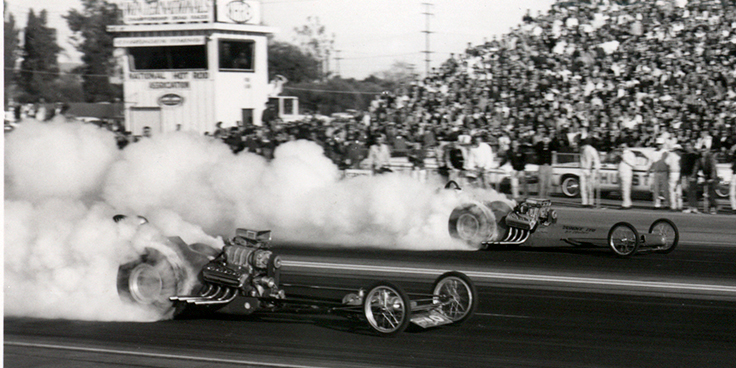
The team also won Hot Rod Magazine Championships in Riverside, Calif., in June, beating Don Prudhomme and the vaunted Greer-Black-Prudhomme machine in Saturday’s class finals, then besting fellow Bakersfield resident Tony Waters in Ernie Hashim’s dragster in Sunday’s runoff, and came one more blown motor away from winning the Nationals in Indy.
Garlits had won Saturday’s AA/FD class at Indy for the right to face Sunday’s winner, Williams, who burned up a piston on his winning run. The tuning was obviously still off a tad against Garlits as they burned two pistons against “Big Daddy” and were soundly defeated, 7.67 to 7.93.
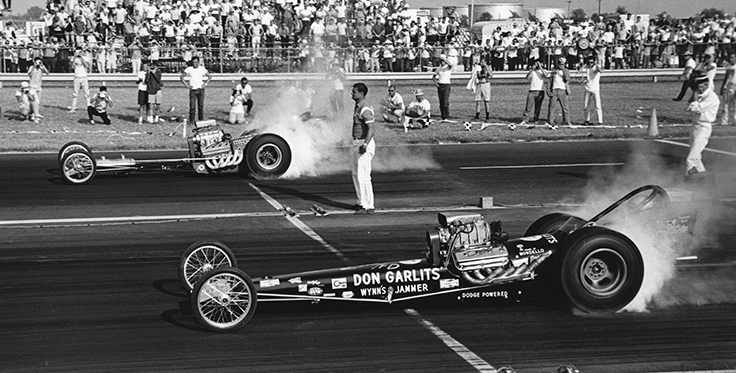
Still, short of the Indy win, they had as dominating a season as anyone had seen at the time. Sadly, Williams’ driving career was cut short the following year when he was badly burned in the fire in the Warren & Crowe dragster at Irwindale Raceway. Williams died in 2006, at age 69.
1974: Gary Beck

The 1974 season was the first in which NHRA’s Pro champions were crowned based solely on points accumulated throughout the season and required them to run a mixture of national and divisional events.
Beck, who had shocked the Top Fuel troops by winning the U.S. Nationals in his first two tries, in 1972 (just weeks after being licensed) and 1973, was reaping the benefits of that notoriety, running with the sponsorship of Canadian cigarette maker Export A. The team, which also included partner Ray Peet’s and mechanic Ronnie Capps (not the current Funny Car driver), also had installed their first aluminum engine but wasted little time ironing out a new combination. They won the Winternationals with four straight five-second passes – something only Don Garlits had previously done at the 1973 Supernationals – defeating 1973 world champ Jerry Ruth in the final.
Beck started the season with seven straight round-wins before red-lighting in the final round of the Gatornationals to Dave Settles and the Candies & Hughes team, who would turn out to be his biggest championship rivals.
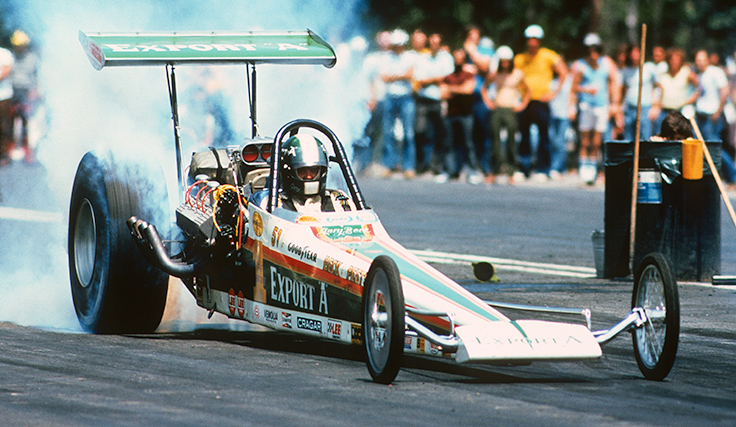
Beck won again at the Springnationals in Columbus and then scored two crucial wins in front of throngs of his Canadian fans, at Le Grandnational outside of Montreal and at the Division 1 event in Cayuga, Ont. Beck’s Grandnational win came at the final-round expense of Settles, who had closed on his points lead with some strong performances in his home Division 4.
Beck’s momentum was derailed only by a mid-summer performance slump and a round-one incident at the U.S. Nationals, where his string of success was snapped – literally – by a broken floater hub that left him with a tricycle that he was able to safely stop.
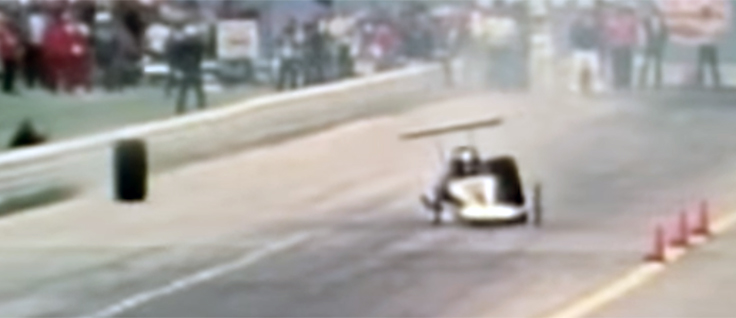
With more strong performances on the divisional level, Settles actually had the points lead heading into Indy, but Settles also lost in round one, and after a crucial win at the Division 1 event at Atco Raceway in New Jersey, Beck entered the World Finals with a 482-point lead, and he needed but two round-wins to mathematically eliminate Settles, and it’s a good thing he did. Settles fouled against Beck in the semifinals, but Beck then crossed the centerline, reinstating Settles under the “first or worst” rule, and Settles went on to runner-up behind Garlits. Beck’s final winning margin was 297 points, in an era where a round-win was worth 200 points.
Beck went on to win 14 more NHRA national events for a career total of 19 and a second championship in 1983 in the dominant Larry Minor machine.
1984: Joe Amato
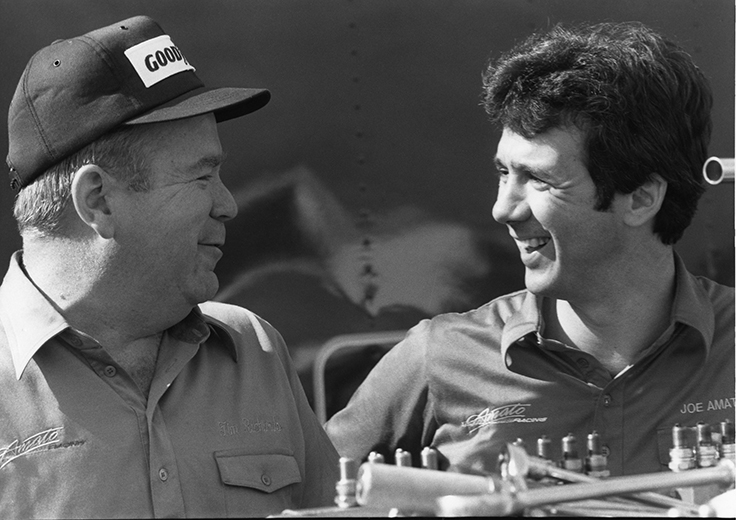
Beginning in 1982, racers could choose between counting points at any 10 of 12 national events on the schedule or at nine events (one of which had to be the World Finals) and the two half-points “pro bonus” events, the Popular Hot Rodding Championships at U.S. 131 Dragway in Martin, Mich., and the Super Stock Nationals at Maple Grove Raceway. (The 1985 season was the first to produce Pro world champs based solely on their national event scores at all events on the schedule.)
Although Amato’s title came in the last year of the “pro bonus race” era, Amato chose to run all 12 nationals and collected three wins and four runner-ups, but it was his first of the year, at the Gatornationals, that got everyone’s attention as the Tim Richards-led team debuted the tall, laid-back rear wing that quickly became (and remains) the de facto profile of a Top Fuel dragster.
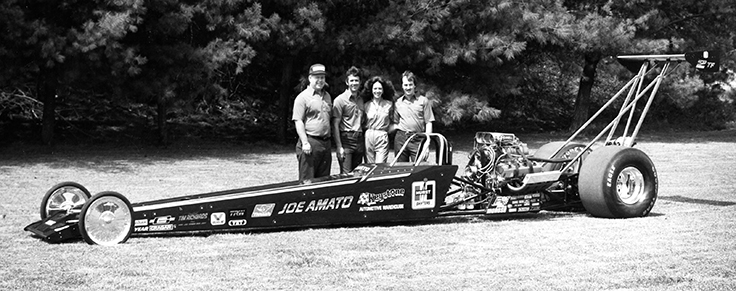
Taking advantage of the leverage effect of the wing for more downforce but less drag, Amato ran 259 mph in qualifying (Gary Beck’s 250.69 was the next closest) then ran a barrier-breaking 260.11 in the semifinals to beat Gary Ormsby and a stunning 262.39 in the final to beat 1983 world champ Beck, whose 251-mph run in round two was the fastest by anyone else in the field.
Amato continued his romp by winning the Southern Nationals in Atlanta (though he “only” ran 259 mph there) before Beck started catching up with wins at the Cajun Nationals, where he beat Amato in the semi's; the Springnationals, where he beat Amato in the final; and Le Grandnational, where Amato went out in round one to Connie Kalitta.
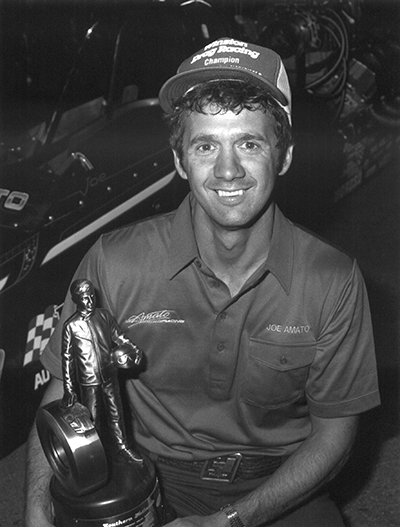
Although he wasn’t winning events, Amato was going rounds. He lost in the Summernationals final to Frank Bradley after a dazzling 264.70-mph run in qualifying and to Kalitta in the final of the Mile-High Nationals.
At the NorthStar Nationals in Brainerd, Amato ran more than 260 mph in all three rounds, including 263.15 in final round against Ormsby. That was Amato’s final win of the season, but the championship was sewed up by Indy, where Amato and Beck both lost early and Garlits staged his amazing career resurrection by winning the event (and running 261 mph, showing that the field had caught up to Amato) and winning the World Finals, too, where he beat Beck in the final. Beck finished about nine rounds behind Amato in points.
Amato would go on to win four more championships — 1988 and three straight from 1990-92 — before retiring at the end of the 2000 season with 52 career Top Fuel wins and five Top Alcohol Dragster victories.
1994: Scott Kalitta
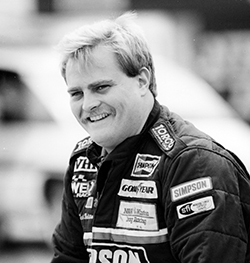
The son of class legend Connie Kalitta had began his career in Funny Car – where he won his first ever event, at the Houston event in 1989 – but found his place in Top Fuel, and 1994 was his breakout season with crew chief Dick LaHaie twirling the iron.
As Kalitta himself mused, "We ran good every once in a while, but no one ever woke up in a cold sweat saying, 'Oh no, I've got Scott Kalitta.' We were never contenders, never a threat."
Until 1994, that is.
Although Scott had scored his first Top Fuel win the year before in Topeka, he and LaHaie made history in 1994 when they became the first Top Fuel team to win four straight events (Columbus, Topeka, Denver, and Sonoma).

The Kalittas had already made history earlier that year when Connie beat Scott in the final round of the Gatornationals in what was the first father-son Top Fuel final in history. At the race before that, in Houston, Scott had lowered the national record to 4.726 and was runner-up in Houston to Don Prudhomme, ending a 27-race winless streak for “the Snake,” who had just started his “Final Strike” retirement tour.
Scott qualified No. 1 and set low e.t. and top speed en route to a dominant Top Fuel victory at the Springnationals, won again in Topeka, then won again at the Mile-High Nationals, where he tied the all-time record for the class with his third win and also made the first mile-high runs under 4.90 and in excess of 290 mph, and in Sonoma for his fourth straight win.
Previously winless Joe Amato defeated Kalitta in the Top Fuel final at the Northwest Nationals, snapping Kalitta's four-race winning streak, but Kalitta bounced back two races later when he reset the national speed record (308.95 mph) en route to his Top Fuel victory at the Keystone Nationals.
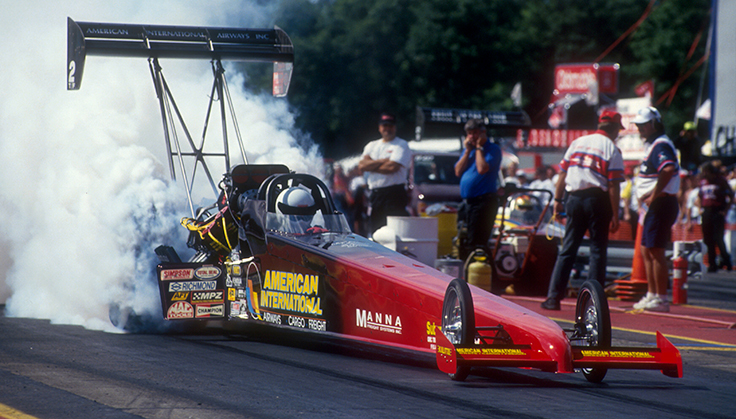
Kalitta clinched the Winston Top Fuel championship with a second-round win at the rain-delayed Chief Auto Parts Nationals then lost in the semifinals to McClenathan, who lost to Prudhomme in the final for what was Prudhomme’s 49th and final national event win.
Kalitta went back-to-back, winning a second straight championship in 1994 and collected 17 Top Fuel wins before returning to his Funny Car roots in 2006. We sadly lost him in a terrible top-end accident at the 2008 Summernationals.
2004: Tony Schumacher
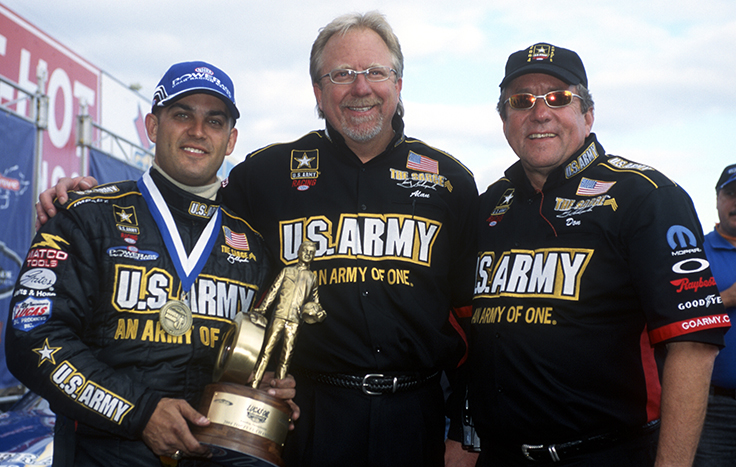
Schumacher had already won his first Top Fuel championship in 1999 with Dan Olson tuning, but it took him five years to get back to the top and begin a six-year reign as world champion, a streak that began with the hiring of Alan Johnson as crew chief of the U.S. Army dragster.
Schumacher and Johnson won 10 of the season’s 23 events and were runners-up at three more in a dominating season. He grabbed the points lead with his win at the season-opening Winternationals and only lost the lead twice over 23 events – to Doug Kalitta and Brandon Bernstein, for exactly one race each – en route to the title.
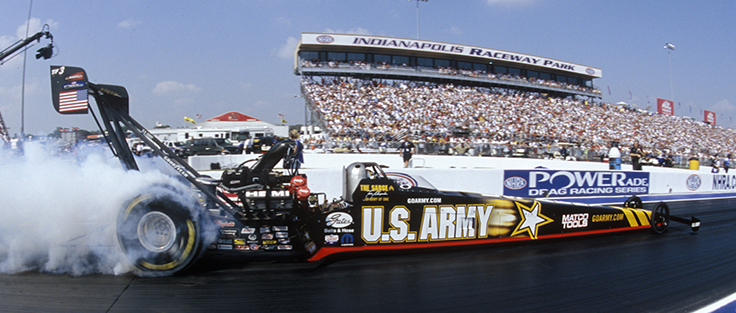
Schumacher won the U.S. Nationals for the third straight year, a feat only previously accomplished in Top Fuel by Don Garlits (1984-86), and also won both Pomona events, as well as Gainesville, Las Vegas 1, Bristol, Seattle, Brainerd, Dallas, and Reading.
It was the first time that any Top Fuel driver had won double-digit events in a season — Gary Scelzi in 2000 (with Johnson tuning) and Larry Dixon in 2002 (with Dick LaHaie on wrenches) had each won nine in their championship seasons — and he won the championship by more than 16 rounds worth of racing, with Doug Kalitta a distant second.
2014: Tony Schumacher
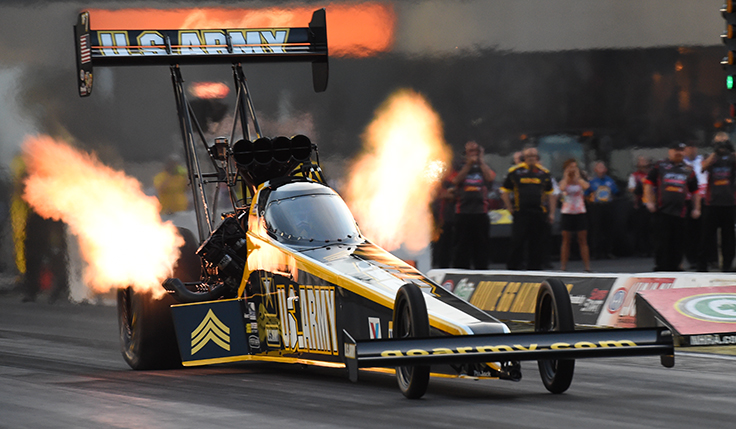
Unlike his 2004 title, Schumacher’s eighth — and to date, his most recent — championship was won late in the season. He didn’t get his first points lead until the first of the season’s final six Countdown to the Championship playoff events, in Charlotte, and never relinquished the lead. Schumacher became the first Top Fuel driver to win the championship in both the Countdown and non-Countdown eras, and only Larry Dixon has duplicated that feat since.
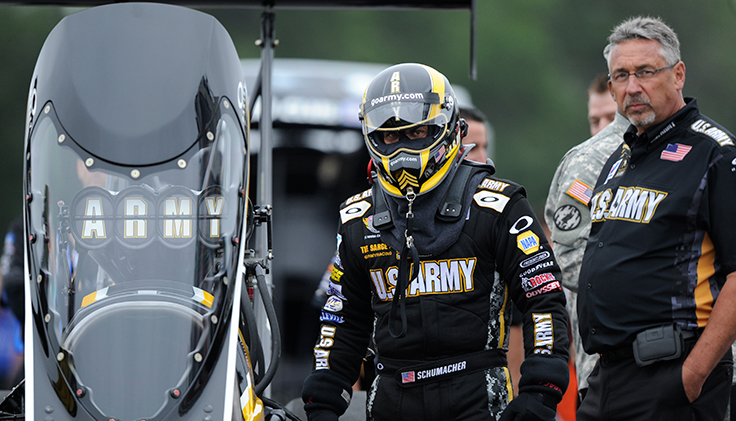
Mike Green had taken Schumacher to the crown in 2009 after taking over for Alan Johnson and also tuned “the Sarge” to this crown with a late-season barrage of wins.
They’d won just two events — Las Vegas and Epping — prior to the Countdown reset, and entered the playoffs in fourth place, then won back-to-back in Charlotte and Dallas and again in Reading, and closed the season with a runner-up at the Finals in Pomona.
The Charlotte-Dallas double was especially noteworthy in that the Charlotte event concluded in Dallas due to rain. Schumacher and his Top Fuel peers had just completed round one of the Pep Boys NHRA Nationals at zMAX Dragway to open the Countdown to the Championship playoffs when rain halted the proceedings. Schumacher had eked out a 3.79 to 3.80 victory over Bob Vandergriff Jr. when action ground to a halt.
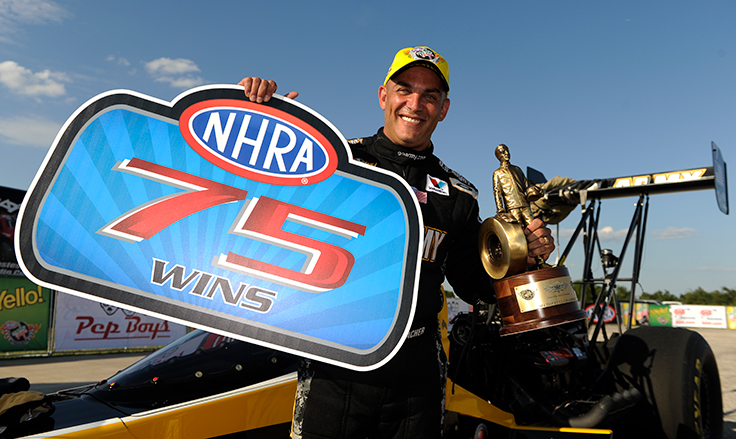
The race resumed the following weekend at the Texas NHRA FallNationals at Texas Motorplex, where Schumacher mowed past Billy Torrence, Spencer Massey, and, in the final round, Khalid alBalooshi to win the event, the 75th of his career, in a bonus round after qualifying completed Saturday. Schumacher and team built on that momentum Sunday and also won the NHRA FallNationals title, beating J.R. Todd in that final round for victory No. 76.
Schumacher won the championship before the Finals and ended up winning the title by more than six rounds worth of racing over surprise second-place finisher Todd.
Six different championships, all won in distinctly different fashions. So cool.
And, as promised, here’s that historical list of NHRA Top Fuel champions:
1964 |
Jack Williams |
1965 |
Maynard Rupp |
1966 |
Pete Robinson |
1967 |
Bennie Osborn |
1968 |
Bennie Osborn |
1969 |
Steve Carbone |
1970 |
Ronnie Martin |
1971 |
Gerry Glenn |
1972 |
Jim Walther |
1973 |
Jerry Ruth |
1974 |
Gary Beck |
1975 |
Don Garlits |
1976 |
Richard Tharp |
1977 |
Shirley Muldowney |
1978 |
Kelly Brown |
1979 |
Rob Bruins |
1980 |
Shirley Muldowney |
1981 |
Jeb Allen |
1982 |
Shirley Muldowney |
1983 |
Gary Beck |
1984 |
Joe Amato |
1985 |
Don Garlits |
1986 |
Don Garlits |
1987 |
Dick LaHaie |
1988 |
Joe Amato |
1989 |
Gary Ormsby |
1990 |
Joe Amato |
1991 |
Joe Amato |
1992 |
Joe Amato |
1993 |
Eddie Hill |
1994 |
Scott Kalitta |
1995 |
Scott Kalitta |
1996 |
Kenny Bernstein |
1997 |
Gary Scelzi |
1998 |
Gary Scelzi |
1999 |
Tony Schumacher |
2000 |
Gary Scelzi |
2001 |
Kenny Bernstein |
2002 |
Larry Dixon |
2003 |
Larry Dixon |
2004 |
Tony Schumacher |
2005 |
Tony Schumacher |
2006 |
Tony Schumacher |
2007 |
Tony Schumacher |
2008 |
Tony Schumacher |
2009 |
Tony Schumacher |
2010 |
Larry Dixon |
2011 |
Del Worsham |
2012 |
Antron Brown |
2013 |
Shawn Langdon |
2014 |
Tony Schumacher |
2015 |
Antron Brown |
2016 |
Antron Brown |
2017 |
Brittany Force |
2018 |
Steve Torrence |
2019 |
Steve Torrence |
2020 |
Steve Torrence |
2021 |
Steve Torrence |
2022 |
Brittany Force |
2023 |
Doug Kalitta |
Thanks, as always, for reading my stuff. I got a lot of great feedback on last week's Top Fuel Mount Rushmore piece. Don Garlits was a unanimous “must have” on our monument, and the three supporting players were a mix of votes for Shirley Muldowney, Tony Schumacher, Kenny Bernstein, Eddie Hill, Darrell Gwynn, Connie Kalitta, and even Chris Karamesines. The best, and probably most appropriate answer, was a Jaws-inspired "We're gonna need a bigger mountain." So true!
Phil Burgess can be reached at pburgess@nhra.com
Hundreds of more articles like this can be found in the DRAGSTER INSIDER COLUMN ARCHIVE
Or try the Random Dragster Insider story generator



